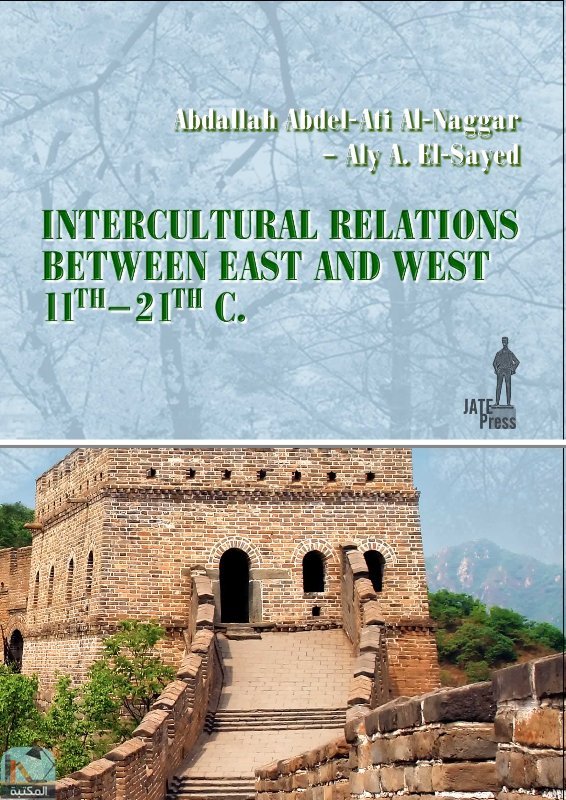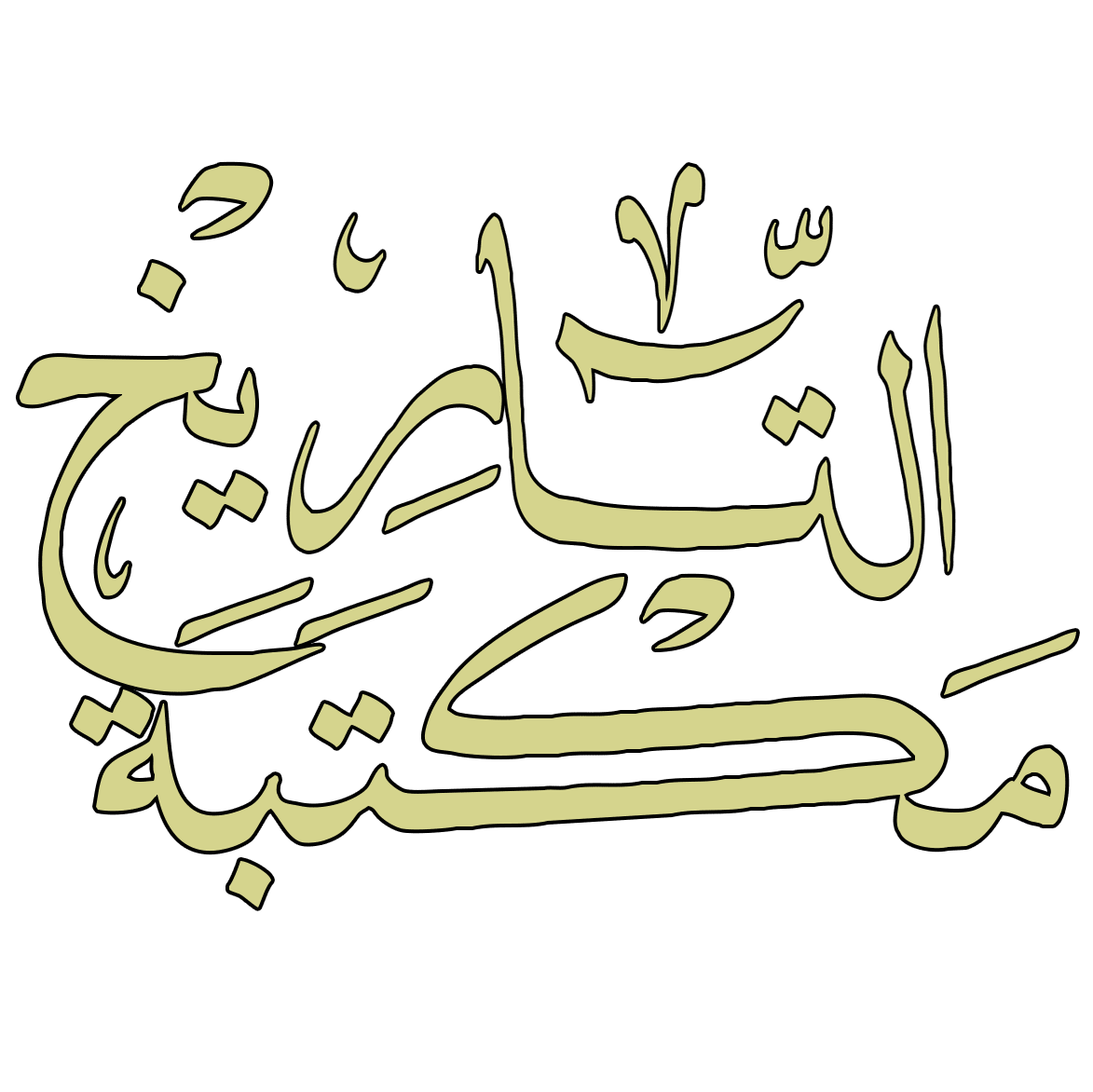

❞ كتاب Intercultural Relations between East And West 11th-21th C ❝ ⏤ مجموعة من المؤلفين
This conference proceeding is the published record of the two conferences1
hosted by the Supreme Council of Culture (26th November 2019) and the Egyptian Association of Historical Studies (27th November 2019). The two events were organized within our international project entitled Intercultural Influence between East and West: 11th to 20th Centuries, funded by the Academy of Scientific Rese-
arch & Technology of the Arab Republic of Egypt and the Italian National Rese-
arch Council. In our conferences, internationally recognized and distinguished researchers (from Germany, Italy, Hungary and Egypt)2 have participated. Project summary: Intercultural influences were witnessed between East and West during Medieval, Modern and Contemporary times. The centuries between the 11th till the 21st were the apex of relations between the East and West through the Crusades, commercial relations, and political treaties as well as in the cultural sphere. Such relations resulted in mutual cultural influences that were manifested in almost all aspects of the daily life. Through narrative and documentary sources – Western and Muslim – we propose to analyse the nature, quantity and quality of peaceful relations between Westerners and Muslims, in the Mediterranean between 11th and 21st centuries, since the contact with the Muslims often posed problems of communication and understanding, especially for the diversity of cultural and religious codes. Problems exacerbated by the possibility of suspicions and accusations of maurofilia for Christians too close to Muslims. Secondly, the lack of systematic data created the image of a seemingly difficult integration and increased some doubts about the acculturation of Westerners living in Muslim lands or voluntarily in contact with them. Nevertheless, many more Christians than we think lived in Islamic lands and were chosen as ambassadors to Christian authorities, to foster greater involvement and predisposition of the Westerners to the Muslim demands and to show clearly the familiarity of this kind of Christian with the Muslim authorities. Following the results of the research and the congressional and seminar activities of the first two years, it was decided: 1) to extend the examined chronological span to the Contemporary Age, allowing the scholars to expand their investigations over a longue durée period and 2) to propose new lines of research to be joined to those already started in 2016/2017, which will lead to a further deepening of the theme of peaceful relations between the Muslim world and the Western one – especially between Egypt and Italy – thanks to the strong dynastic, political, economic and cultural lato sensu ties that united the Mediterranean’s northern and southern shores, with a special attention, of course, for Egypt. We continue to analyse the attempts and methods of peaceful co-existence at different levels. It will be examined the Christian merchant environment present already from the 11th century in numerous funduqs of the Islamic Mediterranean, one of the most suitable for the contacts of Europeans with the Muslim and Jewish cultures. Numerous European sources testify that Christian merchants were well versed in the reality in which they lived, not only for commercial or political information they could spread in the West, but also for those concerning traditions and culture of the places of residence. Trade relations – but not only – which lasted centuries until well past the fifteenth century and that point out watermark differences in relations between the Christian and Muslims "States" – in several Islamic countries but also in the communities of Muslims internally housed – and the great political changes occurred in these centuries both on the European and the Islamic side of the Mediterranean. In the analysis of the institutional relations between the European “States” and their Muslim counterparts, a particular attention will be devoted to the different relations with Egypt and to the emperor Frederick II of Hohenstaufen’s personality (1194-1250), his relationships with the Muslim world and, especially, with the contemporaries Ayyubid sultans and his own interpretation of the crusade concept. The widening of the chronological span taken into account and the insertion of new researchers in the two Units will allow scholars to devote themselves to the research line on peaceful relations between the Ottoman Empire and Italy from the 16th to the 19th centuries, including the analysis of diplomatic, commercial relations and the mutual Italo-Egyptian influence in various aspects of material and immaterial culture. In this regard, special attention will be given to the impact of the Italian community in Alexandria on the formation of the city"s cultural heritage during the 19th and the 20th century. Equal interest will be dedicated to the widespread presence in the Italian cities of Egyptian museums and collections of antiquities that reminds us of the interest and "discovery" of Egypt in Italy in the nineteenth and twentieth centuries, but also it attests to the interest of the Courts of some ancient Italian states: from the court of Savoy, to the Medici’s Florence, then De Lorraine one, to the Roman court, to the Habsburg Milan in the early nineteenth century. The Unitarian State consolidated this interest by adopting nationalisation policies for antique and artistic collections in the context of the creation of a nation"s cultural heritage.
It is interesting for ISEM-CNR to deepen these two moments of the presence of Egyptian antiquities in Italian culture and imaginary: the acquisition phase of individual finds in the modern age and, subsequently, the phase of musealisation and inclusion of this heritage in the national culture with the creation of a museum network specifically dedicated to Egyptian collections. Finally, a second aim of the project, no less important than the first devoted to the research, aspire to the reflection on the theme of peaceful exchanges between Westerners and Muslims, not only in academic environments but also outside them, through dissemination activities at schools and civil society with two purposes: to relativise and deny many stereotypes still prevalent on Westerners-
Muslim relations; identify the historical moments of peaceful coexistence as examples of good practice to think, in light of the reality that tends to propose a growing conflict in the relationship between Westerners and Muslims, concealing almost the positive examples of coexistence and acceptance.
مجموعة من المؤلفين - "مجموعة من المؤلفين"، هو ركن للكتب التي شارك في تأليفها أكتر من كاتب ومؤلف، وهو قسم مميز مليء بالكتب التي تعددت الجهود في إخراجها على أكمل الوجوه.
من تاريخ الحضارات القديم في حوض البحر المتوسط وفي دول اسيا كتب تاريخ قارات العالم - مكتبة كتب التاريخ.




 منصّة المكتبة
منصّة المكتبة 